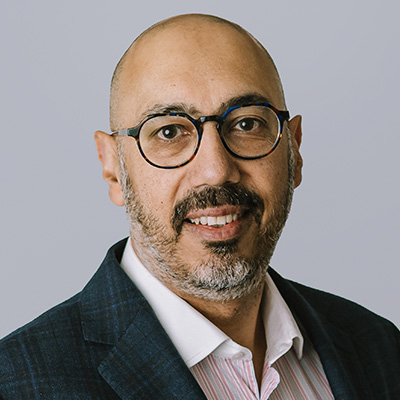NEW YORK & CAMBRIDGE, England– Empyrean Neuroscience, Inc., a leading genetic engineering company dedicated to developing neuroactive compounds to treat neuropsychiatric and neurologic disorders, today announced that it has launched with a $22 million Series A financing and a genetic engineering platform to advance a pipeline of neuroactive compounds targeting disorders of the central nervous system (CNS). The company is founded on a proprietary platform designed to genetically engineer small molecule therapeutics from fungi and plants. Veteran biotech executives Usman “Oz” Azam, M.D., Chief Executive Officer, and Fred Grossman, D.O., FAPA, Chief Medical Officer, lead the company.
Through precision targeting and engineering of the fungal and plant genomes, Empyrean is working to enhance and modulate neuroactive compounds produced by these kingdoms. The platform is being used to identify therapeutic fungal alkaloids, cannabinoids, and other small molecules that may exhibit enhanced efficacy and safety. In addition, the platform is designed to discover novel small molecules that may exhibit a therapeutic benefit.
“There is an enormous medical need for safe and effective therapeutics that treat neuropsychiatric and neurologic disorders and we believe genetic engineering provides the answer,” said Dr. Azam, Empyrean’s Chief Executive Officer. “By applying our genetic engineering platform to make precise modifications to the genomes of fungi and plants, we can change the amount and kind of neuroactive small molecules they produce, with the goal of developing safe and effective treatments for difficult-to-treat diseases of the CNS.”
The company’s developmental pipeline includes fungal alkaloids, cannabinoids, and other neuroactive compounds, such as N,N-Dimethyltryptamine (DMT), for the potential treatment of major depressive disorder (MDD), post-traumatic stress disorder (PTSD), neurologic disorders, substance abuse and dependence, and chronic pain. Investigational New Drug (IND) enabling studies of the company’s first genetically engineered encapsulated mushroom drug product are currently underway, and the company aims to enter the clinic for MDD in 2023.
“Fungal alkaloids and cannabinoids have shown promise in treating depression, PTSD, anxiety, and other neuropsychiatric and neurologic disorders,” said Dr. Grossman, Empyrean’s Chief Medical Officer. “We believe our approach of genetically engineering fungi and plants can improve their safety and efficacy and will ultimately help to address the substantial unmet medical need in patients who suffer from these diseases.”
As part of its genetic engineering platform, the company has licensed CRISPR/Cas9 technology from ERS Genomics for genetic engineering applications related to its therapeutic pipeline.
Dr. Azam was previously President and Chief Executive Officer of Tmunity Therapeutics, a biotech developing genetically engineered cell therapies for applications in cancer. Before Tmunity, he was Global Head of Cell & Gene Therapies at Novartis, where he was responsible for commercial operations, business development licensing, new product commercialization, clinical development, regulatory affairs, and other aspects of the global cell and gene therapies business. He was Chief Executive Officer of Novaccel Therapeutics, Chief Medical Officer of Aspreva Pharmaceuticals, and earlier in his career, held positions at Johnson & Johnson, GSK, and Pfizer. Dr. Azam received his M.D. from the University of Liverpool School of Medicine and is board certified in obstetrics and gynecology in the United Kingdom.
Before joining Empyrean, Dr. Grossman was Chief Medical Officer of Mesoblast Ltd. and President and Chief Medical Officer of Glenmark Pharmaceuticals. He has held executive leadership positions in large pharmaceutical companies, including Eli Lilly, Johnson & Johnson, Bristol Myers Squibb, and Sunovion. He has been responsible for leading the development, approval, and supporting the launch of numerous global medications addressing significant unmet medical needs across therapeutic areas, particularly in the CNS. He has held academic appointments and has authored numerous scientific publications. He was trained in psychiatry at Hahnemann University in Philadelphia and at the National Institute of Mental Health in Bethesda, Maryland and completed a Fellowship in the Section on Clinical Pharmacology at the National Institutes of Health. Dr. Grossman is a board-certified psychiatrist and Fellow of the American Psychiatric Association.


